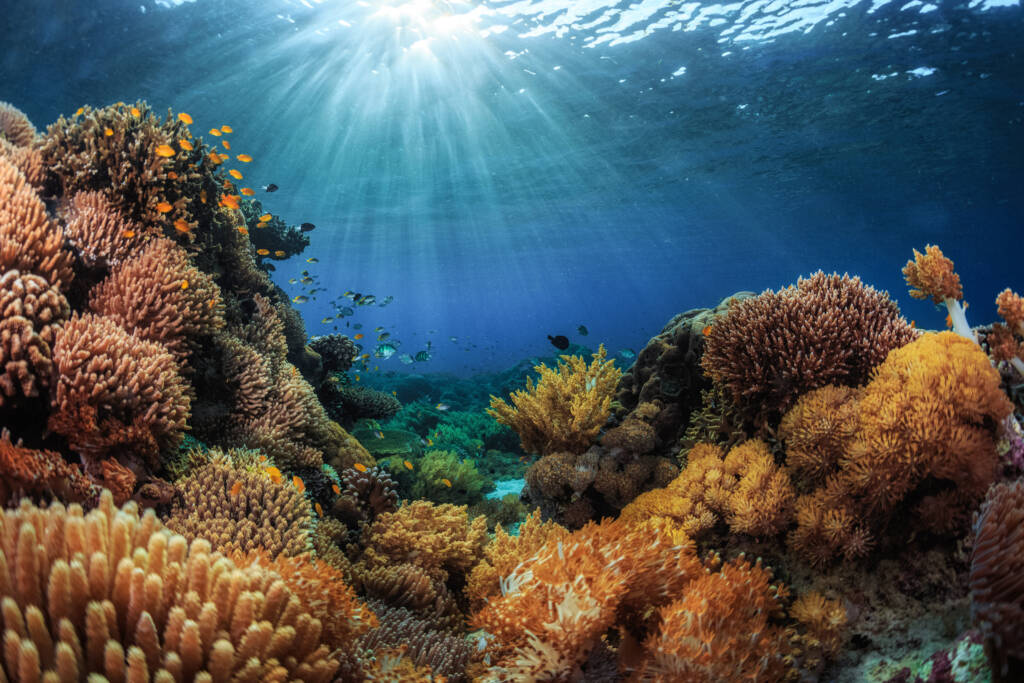
Marine Science (lab)/Marine Science Honors (lab)

As our amazing planet continues to change over time, it becomes increasingly apparent how human activity has made environmental impacts. In the marine science course, students will delve deep into Earth’s bodies of water and study geologic structures and how they impact the oceans. Students will investigate the characteristics of various populations, patterns of distribution of life in our aquatic systems, and ongoing changes occurring every day in our precious ecosystems. Students will be amazed and enlightened at just how much our oceans and lakes affect climate, weather, and seasonal variations. They will have the opportunity to explore the relationships among living organisms and see how they are affected by our oceans’ currents, tides, and waves. Hold on, it is one amazing journey.
Major Topics and Concepts
Segment 1
- Scientific Method
- Writing a Hypothesis
- Designing an Experiment
- Properties of Water
- Science of Navigation
- Ocean Exploration
- Rocky Shore Ecosystem
- Introduction to Crustaceans
- Ocean Zones
- Sea Turtles (rehabilitation and migration)
- Shrimp Industry
- Sandy Beach Ecosystem
- Beach Erosion Control
- Marine Pollution
- Introduction to Marine Phytoplankton
- Organism Adaptations
- Energy and Food Webs
- Human Impact on the Marine Environment
Segment 2
- Characteristics of Ocean Surface Currents
- El Niño Southern Oscillation Phenomenon
- Hurricane
- Penguins and a study of their insulating properties
- Antarctic (Research and Ecology)
- Coral Reefs
- History of the Aqualung
- Exploring the Classes of Mollusks
- Importance and Characteristics of Estuaries
- Mangrove Ecosystem
- Nutrients in the Marine Environment
- Exploring the Ocean’s Abyss
- Causes of Waves and Tides
- Plate Tectonics
- Exploring the Classes of Fish
- Marine Mammal Characteristics and Adaptations
- Exploration of Kelp and its Importance
- Keystone Species
- The Destructive Practices in the Fishing Industry
- Human Impact on the Marine Environment
Competencies
Ocean Properties
Students will demonstrate an understanding of ocean properties by describing the study of aquatic ecosystems, describing the abiotic and biotic factors of aquatic ecosystems, and explaining the properties of seawater.
Ocean and Atmosphere Interactions
Students will demonstrate an understanding of ocean and atmosphere interactions by describing the theory of plate tectonics and ocean formation, explaining the impacts of weather, explaining the impacts of climate, and explaining the relationship between ocean and atmosphere.
Ocean Movement
Students will demonstrate an understanding of ocean movement by explaining types of seasonal and successional change, describing elements of ocean energy, and describing coastline dynamics.
Ocean Life
Students will demonstrate an understanding of ocean life by explaining marine biodiversity and natural selection, describing characteristics of marine populations, and analyzing interactions within marine habitats.
Ocean Interactions
Students will demonstrate an understanding of ocean interactions by describing connections between marine ecosystems and energy exchange, explaining relationships among marine organisms, and describing the human impact on the marine environment.
Conservation
Students will demonstrate an understanding of conservation by explaining marine conservation issues, analyzing types of marine resources, and describing the protection of the ocean.

